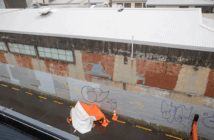The proposed and delayed Plant, Structures, and Hazardous Work regulations would leave an ever-smaller pool of Mobile Elevated Work Platform (MEWP) inspectors to maintain an increasing number of machines, says Elevating Work Platform Association Chief Executive Rodney Grant

There are approximately 18,000 mobile elevating work platforms operating throughout New Zealand, all of which require two inspections per year. As of 2021, there were only 91 registered inspectors who must carry out over 200 inspections each per year – or one inspection, on average, every day. This could worsen with the proposed regulations.
There is no doubt that changes are urgently needed, as the current and outdated health and safety regulations pose significant risks to workers in sectors such as cranes, scaffolding, roofing, and MEWPs. But the Government’s proposed and unnecessary increased standards to ensure inspectors’ competencies – when the MEWP industry’s well-developed inspection and maintenance regimes are one of the world’s best – could reduce the pool of inspectors.
It is proposed that an inspector must be CBIP-certified, must have an AS/NZS2214 welding supervisor qualification, and must be part of a Registered Inspector Body (WorkSafe controlled). Despite this, there is no requirement for an inspector to understand MEWPs except a basic understanding of the relevant standards AS/NZS 1418.10:2011 and AS 2550.10:2006.
Further, there is no requirement for these inspectors to keep informed and educated on the technologies, issues and worldwide incident reporting of MEWPs.
This would limit the variation of the end users’ choice of where they can get their machine inspected and a monopoly in the market will be created with an increase in prices per inspection, affecting the owner of the plants.
Owners could be forced to become uncompliant or seek other less costly but riskier options to work at height. A MEWP is an effective control measure in reducing risk whilst working at height.
There are other issues with the proposed regulations; notwithstanding they are yet to be finalised with no definite timeline provided by the Government for their publication despite being drafted in mid-2019.
With the already long list of concerns our industry has to deal with, I hope the ‘Government dragging its feet’ comes to an end pretty quickly. We want to make the industry safer and a less restrictive option to use when working at height.








